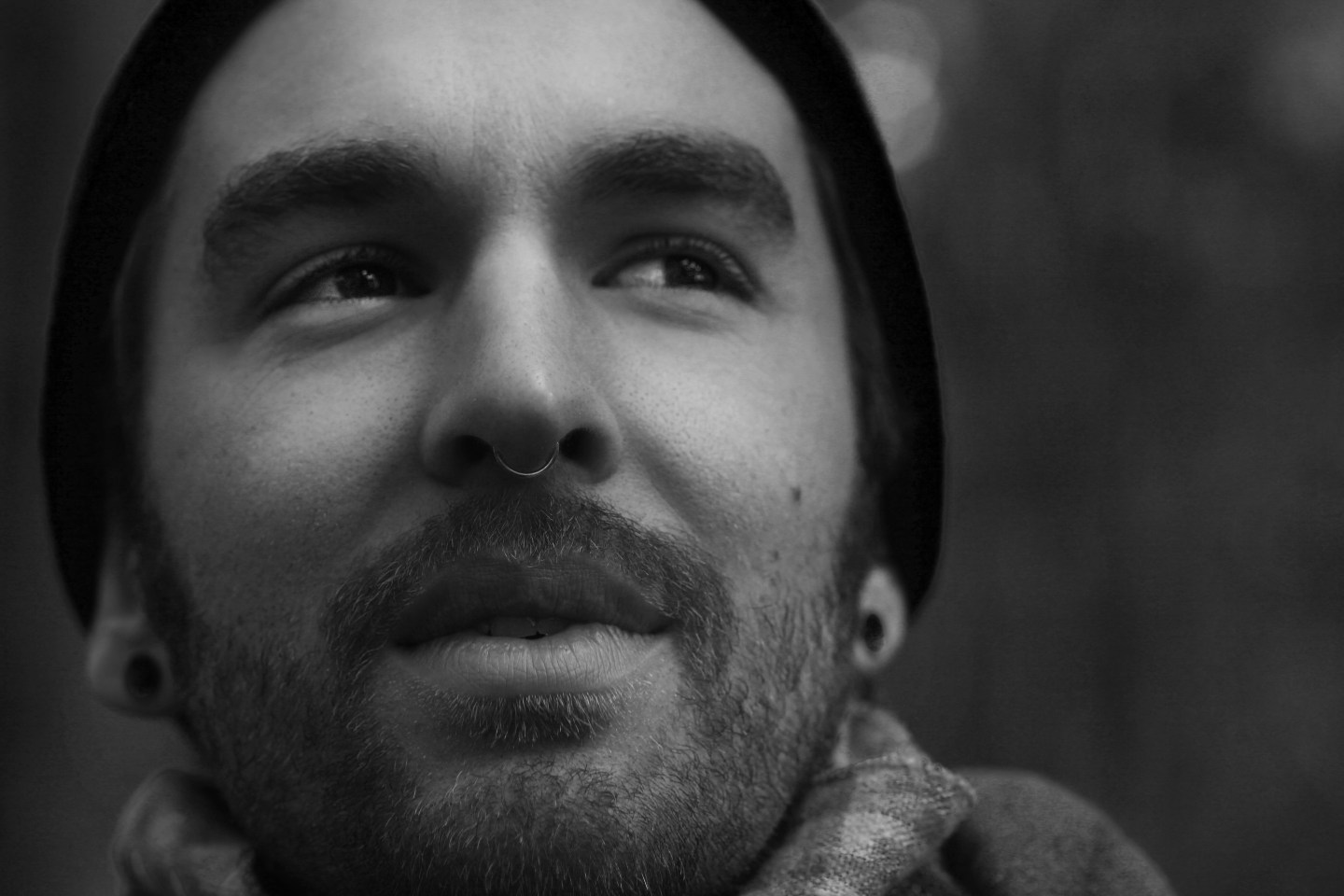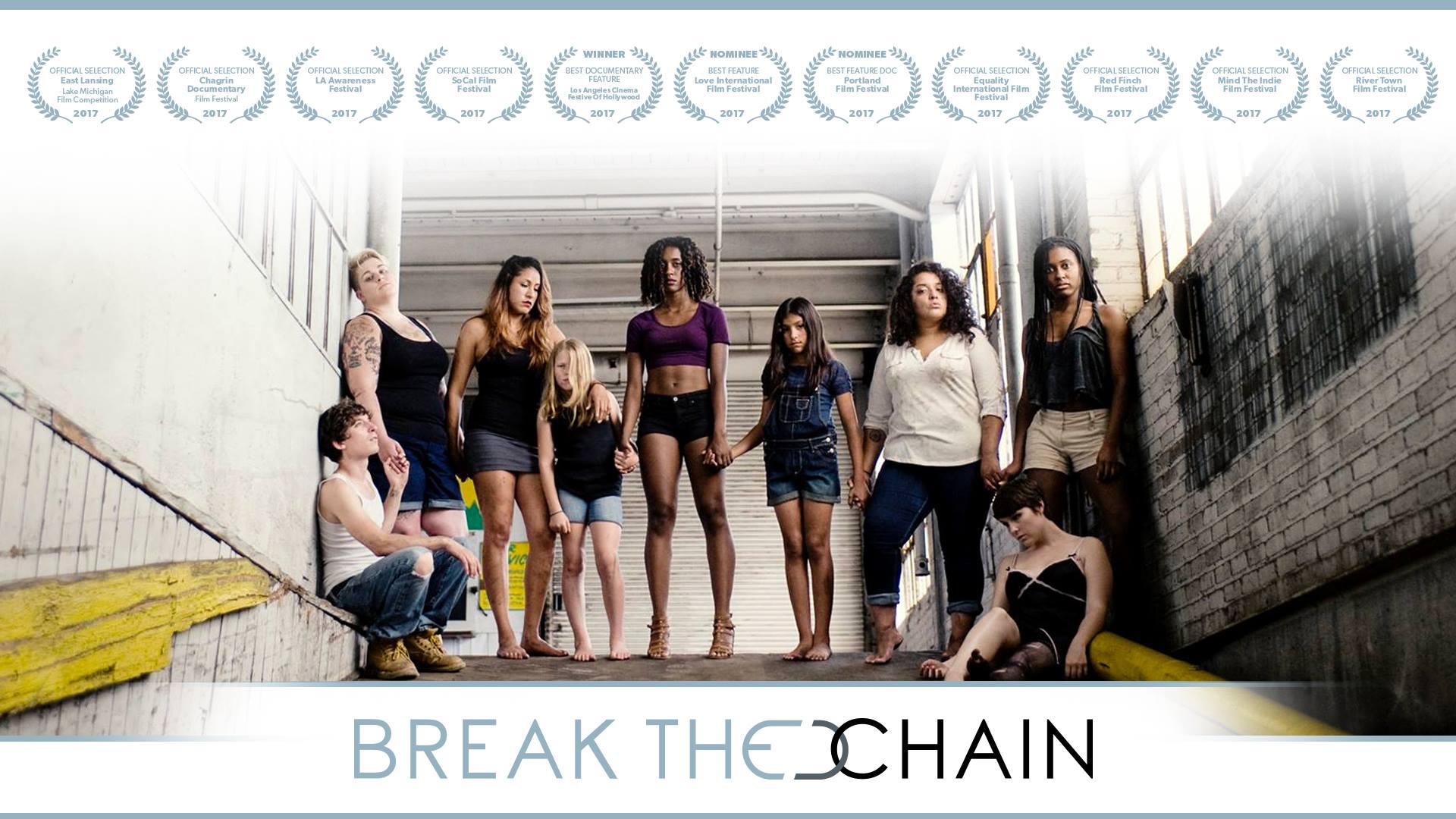‘Don’t Be Afraid to Take Big Risks’: Interview with Filmmaker Kirk Mason
April 8, 2019
By Charlotte Baykian ’19
Kirk Mason ’14 has taken his experiences from Michigan State University and the Residential College in the Arts and Humanities (RCAH) and run with them—straight to the big screen. Mason and co-director Laura Swanson’s award-winning feature-length documentary, “Break the Chain,” addresses the ongoing issue of human trafficking in Michigan and across the country.
The film offers detailed interviews with two survivors of human trafficking in Michigan, exposing its extensive, yet unnoticed, presence in Michigan communities. The film argues that trafficking happens everywhere, in every industry and in every community. It features several interviews with politicians, non-profit organizers, artists, and others actively working to raise awareness of the issue.
“Everyone is peripherally involved in human trafficking because it occurs in so many industries,” Mason said. “From the shoes you buy, to the coffee you drink, to the transportation that brings everything to you, human trafficking is everywhere.”

A Lansing native, Mason first became involved in the issue when he and Swanson, a 2015 MSU alumna, teamed up to make a film about sexual assault after meeting in a documentary studies program at MSU. Swanson later asked if Mason would be interested in another collaboration—this time to create a documentary about human trafficking.
“When I started to learn more about human trafficking and how prevalent it is in our society and around the world, I knew it was an effort I wanted to contribute to in a meaningful way,” Mason stated in an interview.
“Break the Chain” was produced to offer a resource that can be used for training and awareness across the country. The collaboration, released in 2016, earned the Best Documentary Feature Award at the 2017 Los Angeles Cinema Festival of Hollywood and has been featured at trainings and workshops in several states over the last two years.
“Break the Chain” continues to inspire action. Its creators currently are partnered with police, public schools, universities, state courts, child-services, shelters, and nonprofit organizations to offer public screenings and private trainings. The film is available on Vimeo On Demand for rent or purchase, and 20 percent of the proceeds are donated to the survivors' anti-trafficking initiatives. More information can be found at the film’s website, http://breakthechainfilm.com.
Mason has pointed to RCAH for inspiring this kind of work. The College, he said, shaped his passion for learning and using that knowledge for humanitarian efforts.
“My time at RCAH helped me be a more understanding storyteller, and allows me to connect with audiences more effectively, which is imperative to my work,” Mason stated.
“People look to work with individuals who are aware of social issues and are passionate about their work,” Mason noted in an interview with RCAH. “On a basic level, working on these types of projects gives my life meaning and purpose in a very tangible way. I owe so much to my time in RCAH.”
For budding filmmakers trying to get their start, Mason says that collaboration and risks will take you far—as well as practicing healthy and consistent creative art-making.
“If you are interested in documentaries, remember that everybody you will ever meet has a lifetime of knowledge you will never know unless you ask them,” Mason continued. “Everybody has a reason for doing something—dive in and find it.”
Kirk Mason responded to questions from Charlotte Baykian at the end of February 2019.
Charlotte Baykian: Where did you grow up?
Kirk Mason: I grew up in Lansing, Michigan. I currently live in Columbus, Ohio.
CB: How did you first get involved in the issue of human trafficking in Michigan?
KM: I met Laura Swanson, my friend and the co-director of "Break the Chain," during the capstone course of the documentary studies program at Michigan State University. There we teamed up to make a documentary about sexual assault, and when that was complete she asked if I would be interested in working on a documentary about human trafficking. The worlds of sexual assault and human trafficking are connected in many ways, so it was easy to transition into that arena.
CB: What was it that got you interested?
KM: When I started to learn more about human trafficking and how prevalent it is in our society and around the world, I knew it was an effort I wanted to contribute to in a meaningful way. I knew we had the capabilities to create something powerful that could make an impact on our own community, and hopefully a much larger one.
CB: What is the history of this issue?
KM: We have never been without slavery in the United States. Every city, every community, no matter how big or small, has trafficking taking place. Everyone is peripherally involved in human trafficking because it occurs in so many industries. From the shoes you buy, to the coffee you drink, to the transportation that brings everything to you, human trafficking everywhere. There is a misconception that the Civil War ended slavery. This is overwhelmingly untrue.
CB: What has the reception been to the film?
KM: Reception has been incredible so far! We've held workshops, trainings, and seminars on human trafficking throughout the country for the last two years. Currently, we are partnering with police, public schools, universities, state courts, child-services, shelters and nonprofit organizations for public screenings and private trainings.
CB: Do you feel RCAH has contributed to your career in any way?
KM: RCAH has absolutely contributed many great things to my career and my life.
CB: How so?
KM: It shaped my preexisting passion for learning into a tool I can manage and use for good causes! My time at RCAH helped me to be a more understanding storyteller, and allows me to connect with audiences more effectively. This is imperative in my work, and makes me more attractive in the eyes of employers and project partners. Knowing how to connect with people through understand and empathy not only leads to incredible career opportunities, it helps shape a career that is fulfilling in life.
CB: What advice might you have for students aspiring to become filmmakers?
KM: Surround yourself with people who challenge you to be better. Don't be afraid to collaborate with others. Don't be afraid to take risks—BIG risks. All your ideas are worthwhile. Practice healthy, consistent, creative art-making of any sort. LISTEN to what others have to say. If you are interested in documentaries, remember that everybody you will ever meet has a lifetime of knowledge you will never know unless you ask them. Everybody has a reason for doing something—dive in and find it!
Related
- Read a review of "Break the Chain."

The Residential College in the Arts and Humanities at Michigan State University is where students live their passions while changing the world. In RCAH, students prepare for meaningful careers by examining critical issues through the lens of culture, the visual and performing arts, community engagement, literature, philosophy, history, writing, and social justice. RCAH is situated in historic Snyder-Phillips Hall, where students learn and live together in a small-college setting, with all the advantages of a major university. For more information, visit rcah.msu.edu, email rcah@msu.edu, or call 517-355-0210.
Facebook https://www.facebook.com/RCAHMSU/
Instagram https://www.instagram.com/rcahatmsu/
Twitter https://twitter.com/RCAH_MSU
YouTube https://www.youtube.com/channel/UCpfDHNy0ws5nxgaL9v1xMGw

